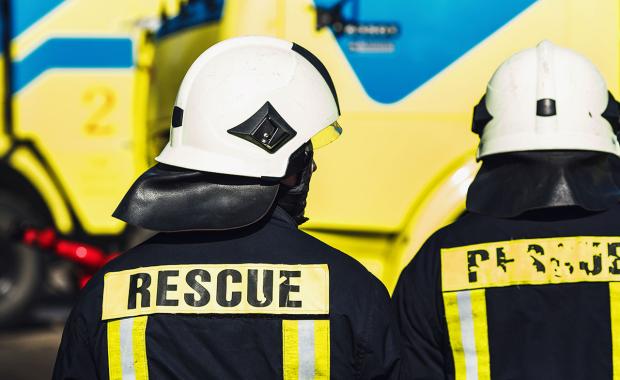
In Augmented Reality News
July 28, 2022 – CGI, a provider of IT and business consulting services, has recently announced the launch of ‘CGI Sense360’, the company’s cloud-based, smart analytics platform that utilizes augmented reality (AR) to give emergency responders holistic and accurate situational awareness in the event of a disaster.
According to CGI, using comprehensive data sources and augmented reality, the platform creates a visual situation overview that helps organizations more efficiently organize and accelerate rescue operations.
Whether a disaster is caused by natural or human hazards, up-to-date information is critical to safe and successful rescue efforts. As a result, CGI Sense360 creates a holistic picture of a disaster using data from a variety of sources across the ecosystem, such as satellites, drones and maps; infrastructure, geospatial, weather and environmental data; and online databases, blogs and social media. The platform’s integrated and secure communications system combines AR, situational images and other data to create a visual overview that is shared with emergency responders in a context-aware manner to enable faster, safer rescue operations.
International aid organization I.S.A.R. (International Search and Rescue) in Germany has been a project partner in the design and development of CGI Sense360. Furthermore, I.S.A.R. is certified by the United Nations for international rescue operations.
“We provide international assistance in humanitarian missions; for example, after natural disasters and accidents or in war zones,” said Dr. Steven Bayer, Project Coordinator at I.S.A.R. “The immediate availability of detailed situation images and current data is crucial for efficient, rapid rescue measures. And, it is precisely this information that the new cloud-based data analytics platform CGI Sense360 can provide.”
CGI noted that development of the platform is also supported by the European Space Agency (ESA). CGI space experts have worked closely with the ESA for about 40 years, including in Bochum and Darmstadt, Germany. CGI’s current projects include the development of a centralized “pooling and sharing” system for secure satellite communications services.
“In rescue operations, analog processes still dominate in many cases,” noted Stefan Wichert, Senior Vice President of CGI’s operations in Northern Germany. “However, an exact situation picture and an unrestricted flow of information are indispensable in the event of a crisis or disaster. In addition, the time factor is important. With CGI Sense360, we offer a high-performance, intelligent and secure platform that meets these criteria. It delivers all the information needed for time-critical coordination and relief operations in near real-time. We see a very large market potential for our new platform, which takes the benefits of digitalization a decisive step forward.”
CGI Sense360 has been initially is designed to support disaster rescue teams, for example, in war zones or in the event of terrorist attacks, accidents, earthquakes, tsunamis, floods and forest fires. CGI stated that the solution draws upon the company’s experience in supporting its clients globally with natural disaster planning and recovery programs. This includes developing wildfire mapping services using artificial intelligence and space data for the ESA, delivering England’s Future Flood Forecasting System, and working with US states and territories to deploy data management systems for administering natural disaster recovery programs.
CGI added that it is continuing to develop the CGI Sense360 solution for additional situational awareness scenarios, such as for the military, police and fire departments, and organizations with critical infrastructure such as utilities, airports and container terminals.
For more information on CGI and its business solutions, please visit the company’s website.
Image credit: CGI
About the author
Sam is the Founder and Managing Editor of Auganix. With a background in research and report writing, he has been covering XR industry news for the past seven years.
